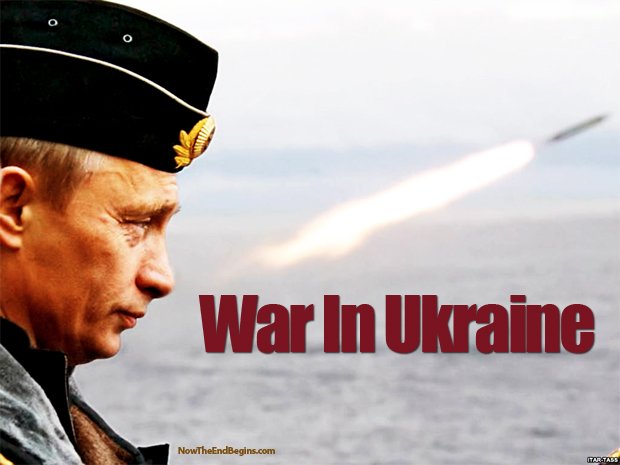Схожі новини
 Internews’ annual media consumption survey shows a dramatic drop in Ukrainians’ use of Russian media. The survey shows that Russian TV viewership shrank to 8% from 27% in 2014, and Russian internet use slid to 27% in 2015 from 44% in 2014. While lower consumption rates for Russian TV might be partially explained by the Ukrainian government’s initiative to ban transmissions of Russian TV signals within the country, internet access has not been restricted.
Internews’ annual media consumption survey shows a dramatic drop in Ukrainians’ use of Russian media. The survey shows that Russian TV viewership shrank to 8% from 27% in 2014, and Russian internet use slid to 27% in 2015 from 44% in 2014. While lower consumption rates for Russian TV might be partially explained by the Ukrainian government’s initiative to ban transmissions of Russian TV signals within the country, internet access has not been restricted.
 Internews commissioned a qualitative research on implementation of media literacy course in secondary schools of Ukraine. The study held in March-April 2015, aimed surveying teachers and students at root level to understand barriers and prospective in applying media literacy course at practice.
Internews commissioned a qualitative research on implementation of media literacy course in secondary schools of Ukraine. The study held in March-April 2015, aimed surveying teachers and students at root level to understand barriers and prospective in applying media literacy course at practice.
Conducted in cooperation with European Research Association (ERA), the research revealed that media education in secondary schools is implemented through successful combination of efforts of Academy of Ukrainian Press that trained OIPE coordinators/teachers at its schools and the Institute for Social and Political Psychology of National Academy for Pedagogical Sciences that developed the national experiment for 80 schools of 10 oblasts of Ukraine.
 Telekritia published English translation of its survey of media consumers in eastern and southern regions of Ukraine. The survey conducted by Kyiv International Institute of Sociology (KIIS) aimed analyzing an influence of Russian propaganda on eastern regions of Ukraine including occupied areas. Researchers also asked about people's perception of political situation in Ukraine. The Telekritika/KIIS survey was supported by the Department for Rights and Labour (DRL) of US Department of State through Internews Network.
Telekritia published English translation of its survey of media consumers in eastern and southern regions of Ukraine. The survey conducted by Kyiv International Institute of Sociology (KIIS) aimed analyzing an influence of Russian propaganda on eastern regions of Ukraine including occupied areas. Researchers also asked about people's perception of political situation in Ukraine. The Telekritika/KIIS survey was supported by the Department for Rights and Labour (DRL) of US Department of State through Internews Network.

Internews published needs assessment report “UNDERSTANDING INFORMATION AND COMMUNICATION NEEDS AMONG IDPs IN EASTERN UKRAINE that resulted from the 2-week trip of Internews Senior Humanitarian Advisor Jacobo Quintanilla and Internews Ukraine project manager Vitali Moroz to the East of Ukraine. From January 20-30, 2015, an Internews assessment team carried out a rapid assessment with displaced populations and host communities in eastern Ukraine to understand their information needs and access to communication channels.
 August 2014 - Internews publisized an online survey of Ukrainian journalists to study journalists’ conception of standards of journalism, interaction with media audience, journalists’ perception of condition of freedom of speech, external and internal factors, that have an influence on quality of journalists’ work and implementation of their role in society, including labor relations, level of job compensation, ethical principles of journalism, level of journalists’ professional knowledge and knowledge of media legislation concerning access to public information, defamation, handling with personal data etc.
August 2014 - Internews publisized an online survey of Ukrainian journalists to study journalists’ conception of standards of journalism, interaction with media audience, journalists’ perception of condition of freedom of speech, external and internal factors, that have an influence on quality of journalists’ work and implementation of their role in society, including labor relations, level of job compensation, ethical principles of journalism, level of journalists’ professional knowledge and knowledge of media legislation concerning access to public information, defamation, handling with personal data etc.
 MediaSapiens translated analytical overview about Russian media coverage of war conflict in Eastern Ukraine. Read about lie and falsifications in Russian news spread through TV channels and online media. Photo credit: http://www.nowtheendbegins.com
MediaSapiens translated analytical overview about Russian media coverage of war conflict in Eastern Ukraine. Read about lie and falsifications in Russian news spread through TV channels and online media. Photo credit: http://www.nowtheendbegins.com
 New research reveals that a clear majority of Ukrainians in Donetsk oblast (region) are watching both Ukrainian and Russian TV news, although trust levels of the population in Ukrainian TV is low. . Around the rest of the country, people prefer to get their news from Ukrainian TV channels. The survey in 10 regions of Ukraine was commissioned by Internews and conducted from April to June 2014 by marketing and research firm InMind for the USAID-funded Ukraine Media Project (U-Media).
New research reveals that a clear majority of Ukrainians in Donetsk oblast (region) are watching both Ukrainian and Russian TV news, although trust levels of the population in Ukrainian TV is low. . Around the rest of the country, people prefer to get their news from Ukrainian TV channels. The survey in 10 regions of Ukraine was commissioned by Internews and conducted from April to June 2014 by marketing and research firm InMind for the USAID-funded Ukraine Media Project (U-Media).
 The Internews is seeking a Content Analysis Expert /Expert Group to assist in implementation of a three-year project Strengthening Investigative Reporting in Ukraine (SIRU). The Content Analysis Expert /Expert Group will analyze the quality of investigative reports produced by Internews implementing partners and provide recommendations on quality improvement.
The Internews is seeking a Content Analysis Expert /Expert Group to assist in implementation of a three-year project Strengthening Investigative Reporting in Ukraine (SIRU). The Content Analysis Expert /Expert Group will analyze the quality of investigative reports produced by Internews implementing partners and provide recommendations on quality improvement.
- У-Медіа » English » Media Research » UKRAINIANS TURNING AWAY FROM RUSSIAN MEDIA IN 2015, SURVEY FINDS
- Переглядів: 1448
- Автор: rfgtw
- Дата: 30-09-2015
UKRAINIANS TURNING AWAY FROM RUSSIAN MEDIA IN 2015, SURVEY FINDS
Категорія: English » Media Research
30 September 2015
UKRAINIANS TURNING AWAY FROM RUSSIAN MEDIA IN 2015, SURVEY FINDS
Press release
Internews’ annual media consumption survey shows a dramatic drop in Ukrainians’ use of Russian media. The survey shows that Russian TV viewership shrank to 8% from 27% in 2014 [1], and Russian internet use slid to 27% in 2015 from 44% in 2014.
While lower consumption rates for Russian TV might be partially explained by the Ukrainian government’s initiative to ban transmissions of Russian TV signals within the country, internet access has not been restricted.
Trust in Ukrainian media up, down in Russian media
The most evident dynamic in 2015 was the decrease in trust of Russian media of all types.
Ukrainians care a lot about honesty and reliability in the news – it’s their top priority, with 46% putting it in first place. While overall trust in Russian media is declining, trust in Ukrainian media has improved since last year.

However many Ukrainians became more critical of the overall quality of the news they have access to (in terms of objectivity and providing opposing viewpoints to provide balance). Compared to 2014, there was an 8% decrease in the number of people who said they were satisfied with the objectivity of TV news.
The public’s ability to distinguish jeansa (stories sponsored by and often written by political parties and businesses and published in the media as news stories) did not change over the last year; 49% of respondents said they were aware of jeansa in media content and 57% of those people said they could distinguish jeansa from regular media content (about 28% of all respondents). The complete Internews/InMind survey in English can be found at http://www.slideshare.net/umedia/internews-media-audience-survey-2015.
Media consumption
Ukrainians traditionally depend on television for their news, but in the past year TV news viewership (both national and regional) declined; 85% of those surveyed watch TV news regularly, a drop of 8% (national networks), while 79% watched regional network newscasts, a drop of 9% from 2014.
Older age groups watch more TV news than younger age groups; 93% of those aged 46 to 55 and 95% of those in the age group 56 to 65 get their news primarily from television. Young people in the age range of up to 25 prefer online social networks (like VKontakte and Odnoklassniki) for news (80%) rather than TV (66%), and they consume news via online news sites (63%), but rarely read newspapers (17%).
Overall, the use of the internet to get news (as opposed to entertainment) increased by 6% in 2015; 51% of respondents in 10 regions visit news websites regularly.
Of those who visit online news sites, most (88%) use national websites and 28% use regional websites to get news.
Although internet users in Donetsk use national online news sites the least of all regions surveyed (70%), Donetsk region was the largest consumer of regional online news media (69%).
The most popular online social networks, as in 2014, are the Russian sites VKontakte and Odnoklassniki, regularly visited by 38% and 31% of surveyed internet users respectively. Facebook is a source of news for 20% of internet users in Ukraine.

The poll was conducted with a sample size of 4,048, including 300 respondents or more in each of 12 oblasts – Kyiv, Lviv, Vinnytsia, Poltava, Sumy, Odesa, Mykolaiv, Kherson, Zaporizhzhia, Dnipropetrovsk, Donetsk, and Kharkiv. A smaller number of respondents in the remaining regions were added to provide a national picture. Donetsk and Luhansk interviews were held in areas under the control of the Ukrainian government.
The comparison of 2014 and 2015 results are restricted to the 10 control regions surveyed in both years - Kyiv, Vinnytsa, Donetsk (under control of the Ukrainian government), Lviv, Mikolaiv, Odesa, Zakarpattya, Sumy, Kharkov, and Cherkasy.
This research is made possible by the support of the American people through the United States Agency for International Development (USAID). The research findings are the sole responsibility of Internews and InMind and do not necessarily reflect the views of USAID and the United States government.
_______________________________________
[1] The 2014-2015 difference in this press release reflect data available for 10 control regions - Kyiv, Vinnytsa, Donetsk (not occupied), Lviv, Mikolaiv, Odesa, Zakarpattya, Sumy, Kharkov, and Cherkasy.

